 Mother of the believers Sayyidah Ayesha Siddiqah
Mother of the believers Sayyidah Ayesha Siddiqah
by Sayyid Shah Aal-e-Rasool Nazmi al-Husaini al-Qadiri Barakati Marehrawi
Sayyidah Ayesha Siddiqah (Allah be well pleased with her) was the third lady to enter the house of the Beloved Habeeb (peace and blessings be upon him) as his wife, and she was the only virgin in the consorts of purity of the Holy Prophet’s (peace and blessings be upon him) house. She was of a tender age when she was married to Allah’s Apostle (peace and blessings be upon him).
Historical records bear ample testimony to the fact that Sayyidah Ayesha (Allah be well pleased with her) was a precocious genius and was developing both in mind and body with rapidity peculiar to such rare personalities. This marriage is significant in the history of Islam in so many aspects.
Firstly, it cemented the ties between Sayyiduna Rasoolullah (peace and blessings be upon him) and his devoted friend Sayyiduna Abu Bakr Siddique (Allah be well pleased with him) who always stood by him in hour of trial and who sacrificed his all for the cause of Islam.
Also Read: Imaam Yakhsyallah: Nurture Love for the Prophet, One Will Be with Whom One Loves
Secondly, by this marriage, a lady of eminent qualities came under the direct influence of the Holy Prophet (peace and blessings be upon him) at a highly impressionable age, and this provided her ample opportunities to penetrate into the innermost recesses of the sacred heart of the Beloved Habeeb (peace and blessings be upon him). She shared his company and thus was able to develop her potentialities and refine her taste perfectly in accordance with the teachings of Islam under the direct supervision of Sayyiduna Rasoolullah (peace and blessings be upon him).
This young age was in fact very opportune for marriage as it has been clearly shown in the research of psychoanalysts that much of the emotional composition of a mature person and many seemingly unaccountable leanings, tastes, tendencies, and idiosyncrasies can be traced to experiences in his or her highly formative years, either later childhood or early adolescence.
Thirdly, all the wives of the Holy Prophet (peace and blessings be upon him) with the exception of Sayyidah Ayesha (Allah be well pleased with her) were of advanced age and thus could neither share the feelings of the younger generation nor could they properly appreciate their point of view.
The difference of age always stood as a barrier between them and the ladies of the younger ages. The only lady with whom young women could frankly enter into conversation and discuss problems without any reserve could be none but Sayyidah Ayesha (Allah be well pleased with her).
Also Read: Thanksgiving: An Islamic Perspective
Thus, the marriage of the Holy Prophet (peace and blessings be upon him) with Sayyidah Ayesha (Allah be well pleased with her) at an age when she was at the threshold of puberty was a great necessity, as it was through her that instructions could successfully be imparted to the young ladies who had newly entered the fold of Islam.
Moreover, this marriage struck at the root of a wrong notion that had firmly taken hold of the minds of the people that it was contrary to religious ethics to marry the daughter of a man whom one declared to be one’s brother. The Messenger of Allah (peace and blessings be upon him), through his personal example, showed the people that there is a great difference between a brother-in-faith and the brother in relation to blood. The marriage, which is forbidden in Islam, is with the daughter of the brother in blood and not with the daughter of the brother-in-faith.
Sayyidah Ayesha (Allah be well pleased with her) lived on almost fifty years after the passing away of the Messenger of Allah (peace and blessings be upon him). She passed away in the year 58 A.H. in the month of Ramadaan and was buried in the sacred graveyard Baqi al-Garqad of Madinatul Munawwara.
Sayyidah Ayesha (Allah be well pleased with her) reported that the Apostle of Allah (peace and blessings be upon him) said:
Also Read: Achieving the Position of Fasting Expert with Kindness of Morality
“I saw you in a dream for three nights when an Angel brought you to me in a silk cloth and he said, ‘Here is your wife’, and when I removed the cloth from your face, it was yourself, so I said, ‘If this is from Allah, Might and Majestic, let Him carry it out.’”
Sayyidah Ayesha (Allah be well pleased with her) used to play with dolls in the presence of the Messenger of Allah (peace and blessings be upon him) and when her playmates came to her they left (the house) because they felt shy of the Holy Prophet (peace and blessings be upon him) whereas Allah’s Messenger (peace and blessings be upon him) sent them to her. People sent their gifts when it was the turn of Sayyidah Ayesha (Allah be well pleased with her) to be in his company seeking thereby the pleasure of Allah’s Messenger (peace and blessings be upon him).
Sayyidah Ayesha (Allah be well pleased with her) said:
“The wives of Allah’s Apostle (peace and blessings be upon him) sent his daughter Faatima (Allah be well pleased with her) to him. She sought permission to enter as he had been lying with me in my mantle. He gave her permission and she said: ‘Allah’s Messenger (peace and blessings be upon him) ! Verily, your wives have sent me to you in order to ask you to observe equity in case of the daughter of Abu Quhafah.’ She (Ayesha -Allah be well pleased with her- ) said: ‘I kept quiet’. Thereupon, Allah’s Messenger (peace and blessings be upon him) said to her (Faatima -Allah be well pleased with her-):
Also Read: The Power of Charity in Ramadan
‘O daughter! Don’t you love whom I love?’ She said: ‘Yes, I do’. Thereupon, he said: ‘I love this one (Ayesha)’.
“Faatima (Allah be well pleased with her) then stood up as she heard this from her father and went to the wives of Allah’s Apostle (peace and blessings be upon him) and informed them of what she had said to him and what he had said to her. Thereupon, they said to her: ‘We think that you have been of no avail to us. You may again go to Allah’s Apostle and tell him that his wives seek equity in case of the daughter of Abu Quhafah’. Faatima (Allah be well pleased with her) said: ‘By Allah I will never talk to him about this matter’.
Sayyidah Ayesha (Allah be well pleased with her) (further) reported:
The wives of Allah’s Apostle (peace and blessings be upon him) then sent Zaynab bint Jahsh (Allah be well pleased with her) , the wife of the Holy Prophet (peace and blessings be upon him) , and she was one who was somewhat equal in rank with me in the eyes of the Prophet (peace and blessings be upon him) and I have never seen a woman more advanced in religious piety than Zaynab (Allah be well pleased with her) , more Allah-conscious, more truthful, more life-giving to the ties of blood, more generous and having more sense of self-sacrifice in life, and having a more charitable disposition and thus more close to Allah, Might and Majestic, the Exalted, than her. She, however, was somewhat quick-tempered yet quick also to loose anger. Allah’s Messenger (peace and blessings be upon him) permitted her to enter as she (Ayesha -Allah be well pleased with her-) was with Allah’s Messenger (peace and blessings be upon him) in her mantle, in the same very state when Faatima (Allah be well pleased with her) had entered. She said: ‘Messenger of Allah (peace and blessings be upon him), your wives have sent me to you seeking equity in case of the daughter of Abu Quhafah’. She then came to me and showed harshness to me and I was looking at the eyes of Allah’s Messenger (peace and blessings be upon him) whether he would permit me (to retort). Zaynab (Allah be well pleased with her) went on until I came to know that Allah’s Messenger (peace and blessings be upon him) would not disapprove if I retorted. Then I exchanged hot words until I made her quiet. Thereupon, the Holy Prophet (peace and blessings be upon him) smiled and said: ‘She is the daughter of Abu Bakr (Allah be well pleased with him) ’”.
Also Read: Ramadan Brings the Change
This Hadith gives a clear glimpse of the home life of the Glorious Messenger of Allah (peace and blessings be upon him). The wives of the Holy Prophet (peace and blessings be upon him) were all eminent ladies having deep Allah-consciousness, but they, after all, belonged to the human race and thus, could not completely banish those minor human weaknesses, which are ingrained in the very nature of the fair sex. They were all deeply attached to the Holy Prophet (peace and blessings be upon him) and every one of them had, therefore, an earnest desire that she should get the maximum love and affection from the Prophet of Allah (peace and blessings be upon him). It was out of this spirit of (permitted) envy, rather than jealousy, that they put forward this demand. It was a natural expression of their human feelings born of their love for the Beloved Habeeb (peace and blessings be upon him), and not an objection against the attitude and behavior of the “Mercy of the Worlds”. And they could not even conceive of it; and how could they, when all of them had been receiving the most beneficent treatment at his hand?
Sayyidah Ayesha (Allah be well pleased with her) reported:
“When the Holy Prophet (peace and blessings be upon him) set out on a journey, he used to cast lots amongst his wives (to choose, without bias, who would accompany him). Once this lot came out in my favour and that of Hafsa (Allah be well pleased with her). They (Hafsa -Allah be well pleased with her- and Ayesha -Allah be well pleased with her- ) both went along with him and when it was night Allah’s Messenger (peace and blessings be upon him) used to travel on camel along with Ayesha (Allah be well pleased with her) and talked with her. Hafsa (Allah be well pleased with her) said to Ayesha (Allah be well pleased with her): ‘Would you like to ride upon my camel tonight and allow me to ride upon your camel and you would see (what you generally do not see) and I would see (what I do not see) generally?’ She said: ‘Yes’. So, Ayesha (Allah be well pleased with her) rode upon the camel of Hafsa (Allah be well pleased with her) and Hafsa (Allah be well pleased with her) rode upon the camel of Ayesha (Allah be well pleased with her) and Allah’s Messenger (peace and blessings be upon him) came near the camel of Ayesha (Allah be well pleased with her), (whereas) Hafsa -Allah be well pleased with her- was riding upon it. He greeted her and then rode with her until they came down. She (Ayesha -Allah be well pleased with her- ) thus missed the company of the Prophet (peace and blessings be upon him) and when they sat down, Ayesha (Allah be well pleased with her) felt jealous. She put her foot in the grass and said: ‘O ALLAH, Mighty and Majestic, let the scorpion sting me or a serpent bite me. And so far as Your Messenger (peace and blessings be upon him) is concerned, I cannot say anything about him’”.
Sayyiduna Anas bin Maalik (Allah be well pleased with him) has said:
Also Read: Ramadan, the Month of Education
“The Holy Prophet (peace and blessings be upon him) said that the excellence of Ayesha over women is like the excellence of Tharid (porridge) over all other foods.”
Sayyidah Ayesha (Allah be well pleased with her) is one of the four persons (the others being Sayyiduna Abu Hurayra (Allah be well pleased with him) , Sayyiduna Abdullah bin Omar (Allah be well pleased with him) and Sayyiduna Anas bin Maalik -Allah be well pleased with him-) who transmitted more than two thousand sayings of the Holy Prophet (peace and blessings be upon him). The Holy Prophet (peace and blessings be upon him), referring to her extensive knowledge of Islam, is reported to have said:
“Learn a portion of your religion from this Humayra (red coloured lady).”
Sayyidah Ayesha (Allah be well pleased with her) not only possessed great knowledge but also took an active part in education and social reform. As a teacher she had a clear and persuasive manner of speech and her oratory power has been described in superlative terms. Men and women came from far and wide to benefit from her knowledge.
Also Read: Come on Do I’tikaf
The Orientalist, D.S. Margoliouth, wrote:
“Of the entire number of inmates, Lady Ayesha alone, by force of character and keenness of wit, won for herself a place in the political and religious history of Islam.” [Quoted by Fida Hussain Maalik in his book, ‘Wives of the Prophet’, Bombay, 1989, Page 124]
Pearls of Wisdom by Sayyida Ayesha as-Siddiqah
- To spend for your guests is not extravagance.
- Good deeds are to refrain from bad deeds.
- A believer of truth never becomes disgraced even if the whole World turns against him while a believer in falsehood never gains respect even if the moon comes out on his forehead.
- Wherever the torch of truth shines it is advantageous to all, and it must not be seen who the torchbearer is.
- A very good trait of character is to protect your tongue.
- When the stomach becomes full the faculty of thought becomes weak and wisdom and understanding become mute.
- Gluttony is the root of all illnesses and abstinence is its remedy.
- Magnificence is gained in 1% friendship and 99% hard work and physical exertion.
(T/P3/R01)
Also Read: During Ramadan, Merit and Good Deeds are Multiplied
Mi’raj Islamic News Agency (MINA)
Source: http://muslimvillage.com/2012/09/05/27930/mother-of-the-believers-sayyidah-ayesha-siddiqah/
Also Read: Ramadan, The Month of Jihad





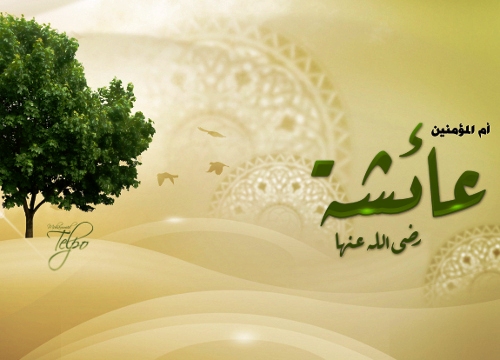







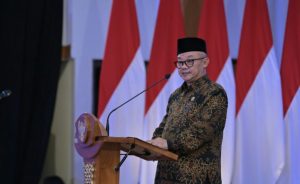

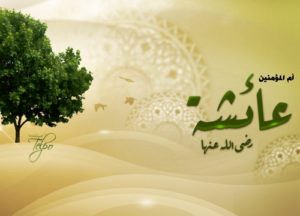




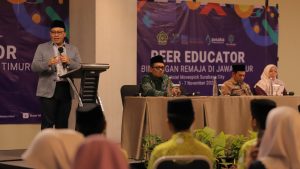

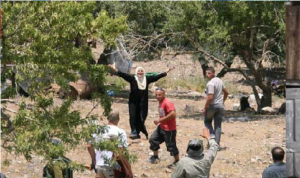






 Mina Indonesia
Mina Indonesia Mina Arabic
Mina Arabic